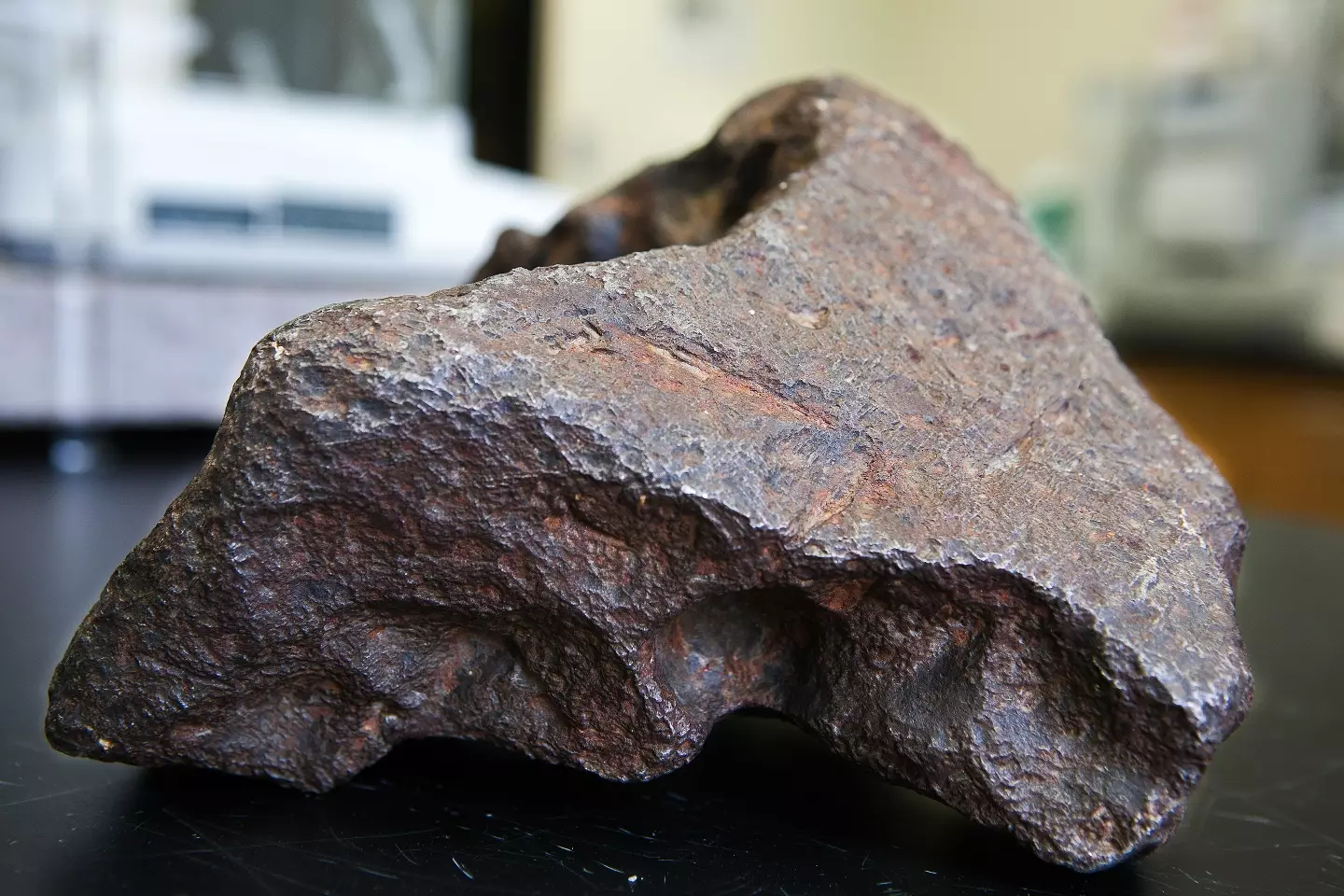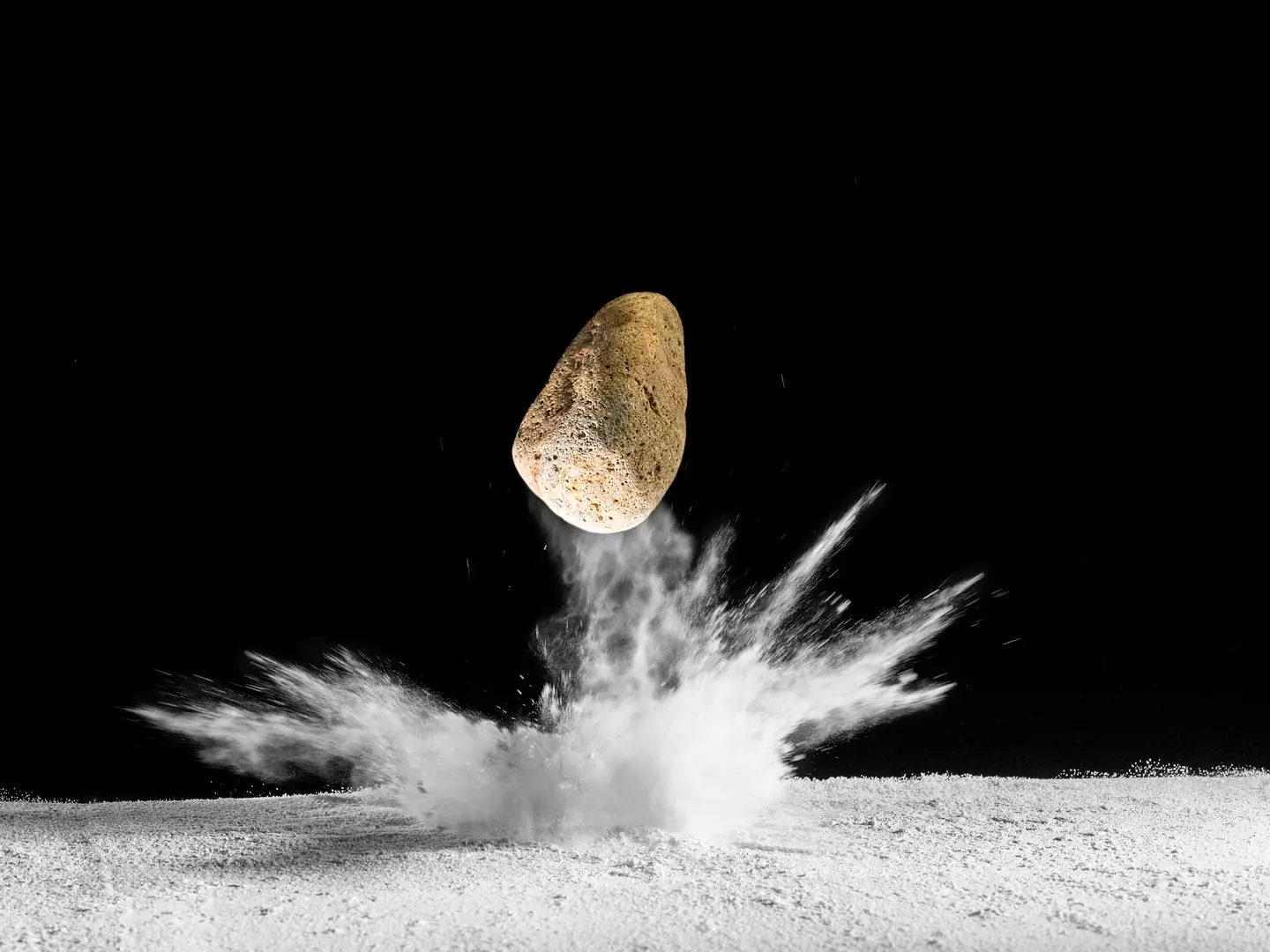
A Michigan farmer's 30-year doorstop turned out to be worth $100,000.
We all have those random objects lying around our homes that we never really think about. Maybe it's your collection of old Blu-Rays or retro video games in your attic, an antique a family member left you, or, for this guy, a heavy piece of metal that's been holding your door open for decades.
For more than 30 years, a Michigan farmer used what he thought was just a heavy rock to prop open his barn door. The man purchased the property in 1988 and after seeing news of small meteorites being found across Michigan, decided to get it checked out.
He brought the space rock to Central Michigan University (CMU) for examination and as it turns out, the doorstop was in fact a massive meteorite worth over $100,000.
Advert

The 22-pound (10kg) chunk of metal seemingly touched down in the 1930s on a farm in Edmore, Michigan. The previous farm owners told him it was a meteorite that they'd witnessed falling from the sky in the 1930s.
They reported that the space rock hit the ground so hard it created a crater, and when they went to retrieve it the next morning, it was still warm from its journey through Earth's atmosphere.
Mona Sirbescu, a geology professor at CMU, analysed the rock and immediately knew this one was different.
While thousands of meteorites weighing about a pound (0.5 kg) hit our planet each year, finding a 22-pound specimen is pretty rare.
The meteorite became the sixth largest recorded find in Michigan, according to a statement from CMU.
"I could tell right away that this was something special," Sirbescu said. "It's the most valuable specimen I have ever held in my life, monetarily and scientifically."
Using X-ray fluorescence instruments, Sirbescu discovered the doorstop was about 88% iron and 12% nickel - a composition that's rare on Earth.

She sent samples to the Smithsonian Institution in Washington, D.C., where researchers confirmed it was indeed a genuine meteorite.
Another sample was sent to John Wasson, a professor at UCLA in the in the Earth, Planetary and Space Sciences department. His neutron-activation analysis can determine the rock's exact chemical composition, which could reveal rare elements that might make it even more valuable.
"Just think — what I was holding is a piece of the early solar system that literally fell into our hands," Sirbescu said.
Meanwhile, the farmer hasn't yet decided whether the meteorite will be sold to a collector or a museum. Both the Smithsonian and a Maine museum have expressed interest in purchasing the rock, the statement suggests.
Whatever he decides, the farmer has promised to donate some of the proceeds to Central Michigan University.